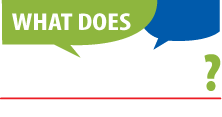Phrases starting with the letter: A B C D E F G H I J K L M N O P Q R S T U V W X Y Z
Definition of: would
(w d)
d)
Past tense of WILL, expressing desire, condition, or what might be expected: used also to express determination: He would go, I couldn't stop him. [OE wolde, pt. of willan will]
♦ would & should Anybody dealing in ifs, as–ifs, promises, threats, hopes, wishes, or similar feelings and attitudes about the real or imagined future, will find himself making plentiful use of would and/or should, which do duty to express the vestigial and fast vanishing subjunctive mood. As to which one to use, the distinctions are subtle and fine–drawn and at several points British usage calls for should where American practice is to use would, although would has not here displaced should to the extent that shall has given way to will (see usage note under SHALL vs. WILL). (1) In simple factual conditions, for example, British usage calls for should in the first person in the conclusion: If he failed, I should (U.S. would) still support him. (2) When one of these modal auxiliaries is to be used in the first person preceding such verbs as like, prefer, care, be glad, etc., British usage holds firmly to should; but American, Scottish, and Irish usage calls for would: We would (Brit. & formal U.S. should) like to have you come to dinner next Tuesday. Would in this example represents true present time. (3) Would is the true past expressing an act of will mostly in negations or expressions of indifference: They asked him to wait, but he would not (was unwilling to comply). (4) Would can also convey customary or habitual action in the past: He would take her gifts every time he called. Except for these rare instances in which would is used as a true past, it is usually confined to the purposes of the subjunctive. (5) It may express an act of will under projected or imagined conditions: (I, You, He) wouldn't tolerate that insult even if it were offered with smiling politeness. (6) When no condition is expressed, would in the second and third person often lacks even a vestigial trace of any act of will: She would be no more than second choice in the matrimonial sweepstakes. (7) When would is stressed with the voice it may indicate (a) an element of malign fate or misfortune: She would be the one to lose her take–home fare; or (b) the notion of persistent contrariness: You would insist on bumping your head against a stone wall twice! (8) In conditions contrary to fact, would is used in conclusion without any feeling of volition involved: Had he left sooner he would have heard less to his discredit. If I had been able to dodge the small souls around the commission, I would (Brit. should) have got a third share in the radio station. (9) Would may also express probability in cases where some contingency or hypothesis is unexpressed: “He was very boastful.” “He would be.” (10) Finally, there is the matter of the idiomatic use of would and should in indirect or reported discourse. In most cases, if the direct utterance used shall, the reported discourse employs should. Similarly, if it was will in the direct utterance, would is used in the indirect discourse. If obligation is involved, should must be used. Except in this area of obligation, would is the more common form in American usage.

Comment about this word, ask questions, or add new information about this topic: